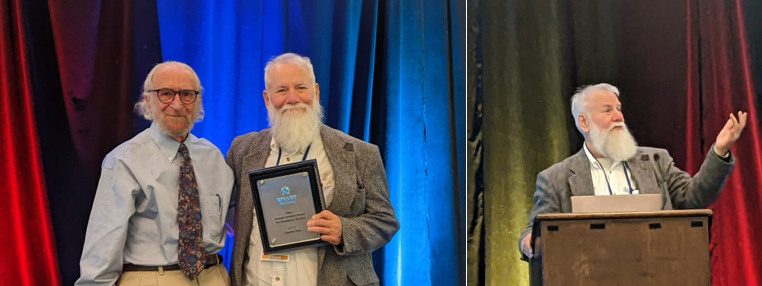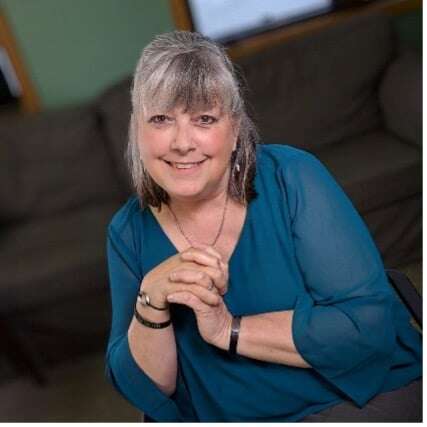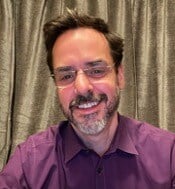Throughout SMART’s 25th anniversary year, culminating in our National Conference September 20 – 22 in Itasca, Illinois, we will honor volunteers representing many types of individual service.
——-
 Dr. F. Michler Bishop was one of the founders of SMART Recovery. He became involved in the precursor to SMART Recovery, a program called Rational Recovery, around 1990, when Jack Trimpey asked him and a group of fellow REBT and CBT addiction psychologists to help launch a new, alternative self-help program. After a brief period of minor impact, the group dissolved but quickly reformed under the current umbrella of SMART Recovery, where key tenets of the program, such as the 4-Points and their supporting tools for behavior change, were delineated by Dr. Bishop.
Dr. F. Michler Bishop was one of the founders of SMART Recovery. He became involved in the precursor to SMART Recovery, a program called Rational Recovery, around 1990, when Jack Trimpey asked him and a group of fellow REBT and CBT addiction psychologists to help launch a new, alternative self-help program. After a brief period of minor impact, the group dissolved but quickly reformed under the current umbrella of SMART Recovery, where key tenets of the program, such as the 4-Points and their supporting tools for behavior change, were delineated by Dr. Bishop.
Dr. Bishop as at that time and still is the Director of Substance Abuse Services at the Albert Ellis Institute in New York City. He launched the first NYC SMART meetings at the Ellis Institute, facing challenges from some of the administration who were reluctant to allow “street addicts” into the Upper East Side townhouse. As fellow SMART board member Hank Robb put it, “While SMART brought REBT to addictions, Michler brought addictions to REBT – at least the Institute in NYC by becoming the center point for addressing this issue at the Institute.”
Indeed, the meetings proved successful and quickly spawned a thriving hub of SMART activity, largely thanks to Michler’s early intention to replace himself as soon as possible by recruiting participants to become volunteer facilitators. He soon had a core group of 4 to 5 participants trained to manage the facilitating of the meetings as well as the business aspects of growing SMART regionally. Within a few years, SMART NYC became independent with its own board of directors and began offering daily meetings in boroughs throughout the metropolitan area. When asked about Dr. Bishop’s influence, founding NYC board president Gary Bagley wrote, “Michler guided SMART Recovery NYC and me in such numerous and varied ways that pinpointing a single moment would be impossible. He coached me as a facilitator, championed our work in becoming a functioning nonprofit, and shared selflessly of his knowledge of REBT and recovery. I cannot imagine SMART Recovery NYC without Michler, but I know he has set the stage for others to lead.”
In addition to his work in NYC, Dr. Bishop contributed to the national growth and development of SMART Recovery. He was the founding vice president and served in that role for several years. Shari Allwood, executive director during that time, says of Michler:“Throughout my time serving SMART Recovery, Michler was the one person I could always count on for:
- solid advice,
- guidance to the board and the organization,
- rational thinking, and
- providing encouragement to me and to others.
If feathers were ruffled amongst board members or volunteers, Michler was always able to calm disturbances. Honestly, if I were in need of a professional therapist, Michler would be my first choice. (Then again, through the years, I guess he ably served in that capacity, simply without pointing it out and without receiving pay!) Without his strong guidance – particularly in the early formative years of SMART Recovery – I’m confident we wouldn’t be where we are today. And he continues to tout SMART Recovery with his international travels, speaking engagements, publications, etc. I’m so pleased to see his well-deserved recognition!”
Dr. Bishop, while often known as soft-spoken and unassuming, has a fascinating life story. He grew up in an NYC suburb as a boy but spent two summers working on a towboat on the Mississippi as a teenager and had great adventures on the water before majoring in economics at Yale University. During that time, he went to Chile on his own, working part-time as an “assistant ingeniero” to the explosive expert, blowing up sides of mountains in the iron mines there and worked on an oil rig as a roughneck in Montana. After a few years, he returned to school and completed a Ph.D. in psychology at Columbia. He did his fellowship with Albert Ellis and specialized in treating addictions with REBT, a relatively new approach at the time. He and his wife, Nelun, have raised five children, the last two now in their last year in college. Michler says that during the early, difficult years, he might have not continued without her support and encouragement.
Dr. Bishop published one of the first books arguing for a compassionate and research-based approach to the treatment of addictions. He is about to publish his first self-help book, “Am I Addicted?”He is also a university professor and continues to see clients and run workshops at the Institute. Dr. Bishop has no plans at this point to retire, saying that interacting with students and clients “boosts my serotonin levels.”
The impact Dr. Bishop has had on SMART Recovery and the many thousands of people who have participated in our program is immeasurable. We thank you for your contributions and ongoing dedication to SMART Recovery and more importantly to those individuals impacted by addiction who so desperately need it.
About the 25 in 25 Volunteer Recognition Program
The heart of SMART’s 25th anniversary celebration in 2019 is the story of an extraordinary community of volunteers who have built a worldwide organization devoted to supporting individuals recovering from addiction, as well as their family members and friends. These volunteers include addiction scientists and treatment professionals who designed a self-empowering 4-Point Program®and joined people with the experience of recovery and trained them to lead mutual support group meetings.
Together they have created and refined a peer-professional mutual-support group model that combines the best science for treating addiction with the lived experience of recovering from addiction – the world’s largest and only community of its kind with more than 3,000 group meetings held each week in 23 countries. Each year, participants in these groups help each other recover at more than 150,000 meetings, in-person and online, led by volunteers trained how to use the SMART program.
Throughout SMART’s 25th anniversary year, culminating in our National Conference September 20–22 in Itasca, Illinois, we will honor volunteers representing many types of individual service.
Click here to nominate a deserving individual.
Click here to learn more about the program and to see all who have been recognized.
About SMART Recovery
Founded in 1994, SMART (Self-Management And Recovery Training) uses science-based techniques that have proven to be effective in helping people recover from addiction problems involving any substance or behavior, including such things as alcohol, drugs, gambling, over-eating, shopping, and internet use.
Each week, thousands of people discuss recovery progress and challenges at more than 3,000 in-person meetings in 23 countries, daily online meetings and 24/7/365 message board forums and chat rooms.
Participants use SMART to assume responsibility for their own recovery and become empowered using its 4-Point Program®: building motivation; coping with urges; managing thoughts, feelings and behaviors; and living a balanced life.
For more information, please visit www.smartrecovery.org.




